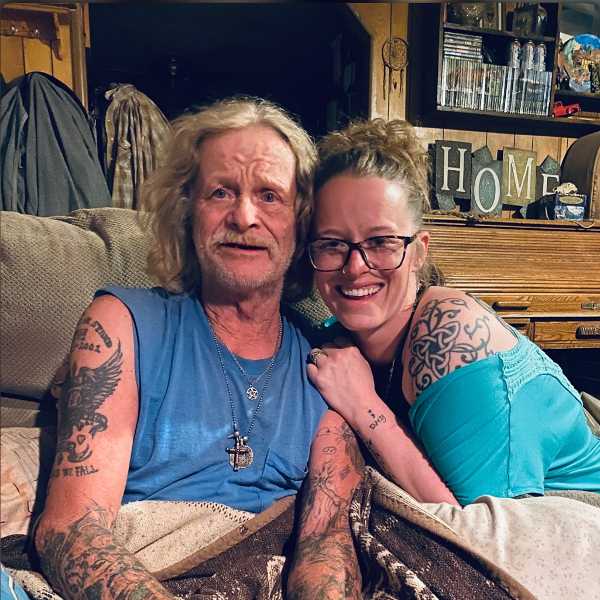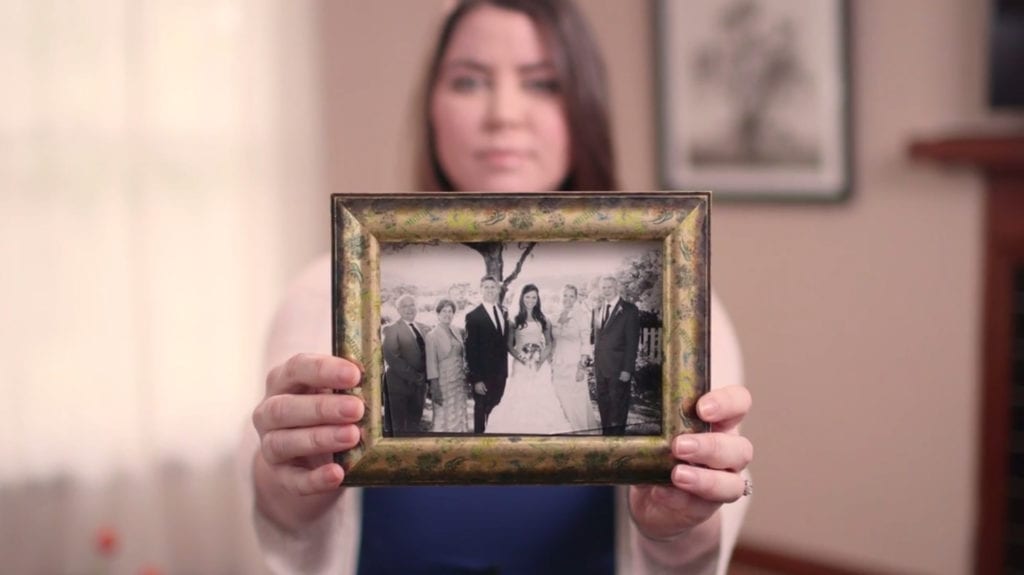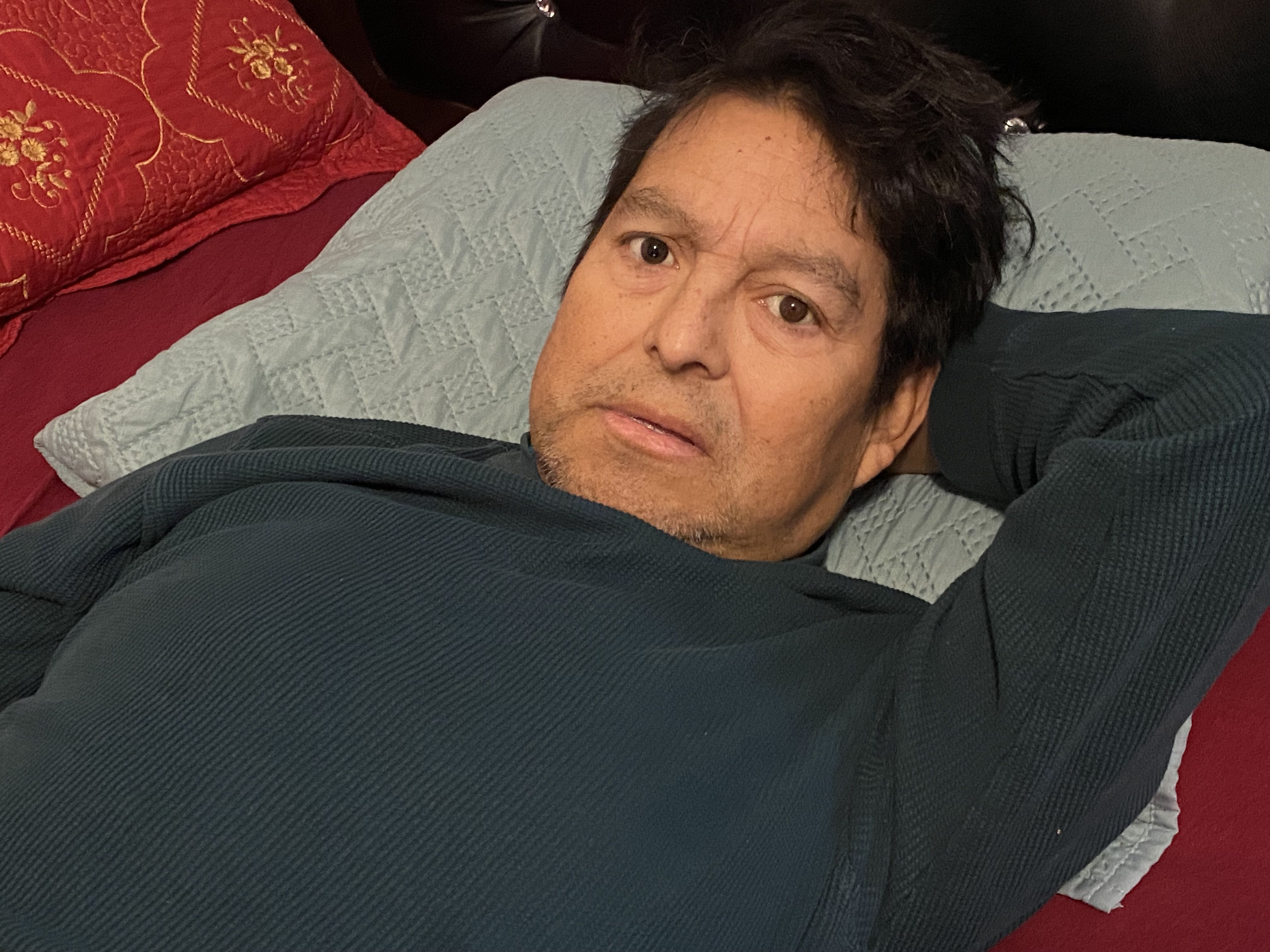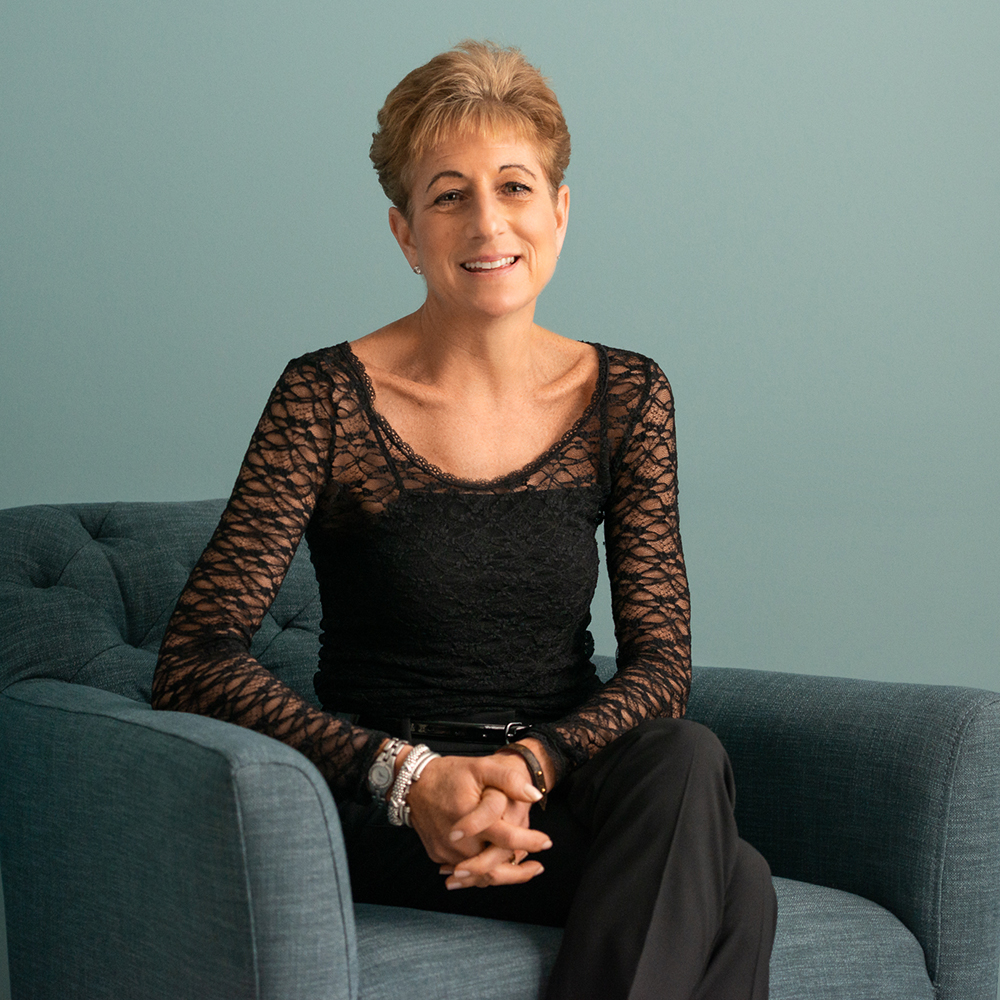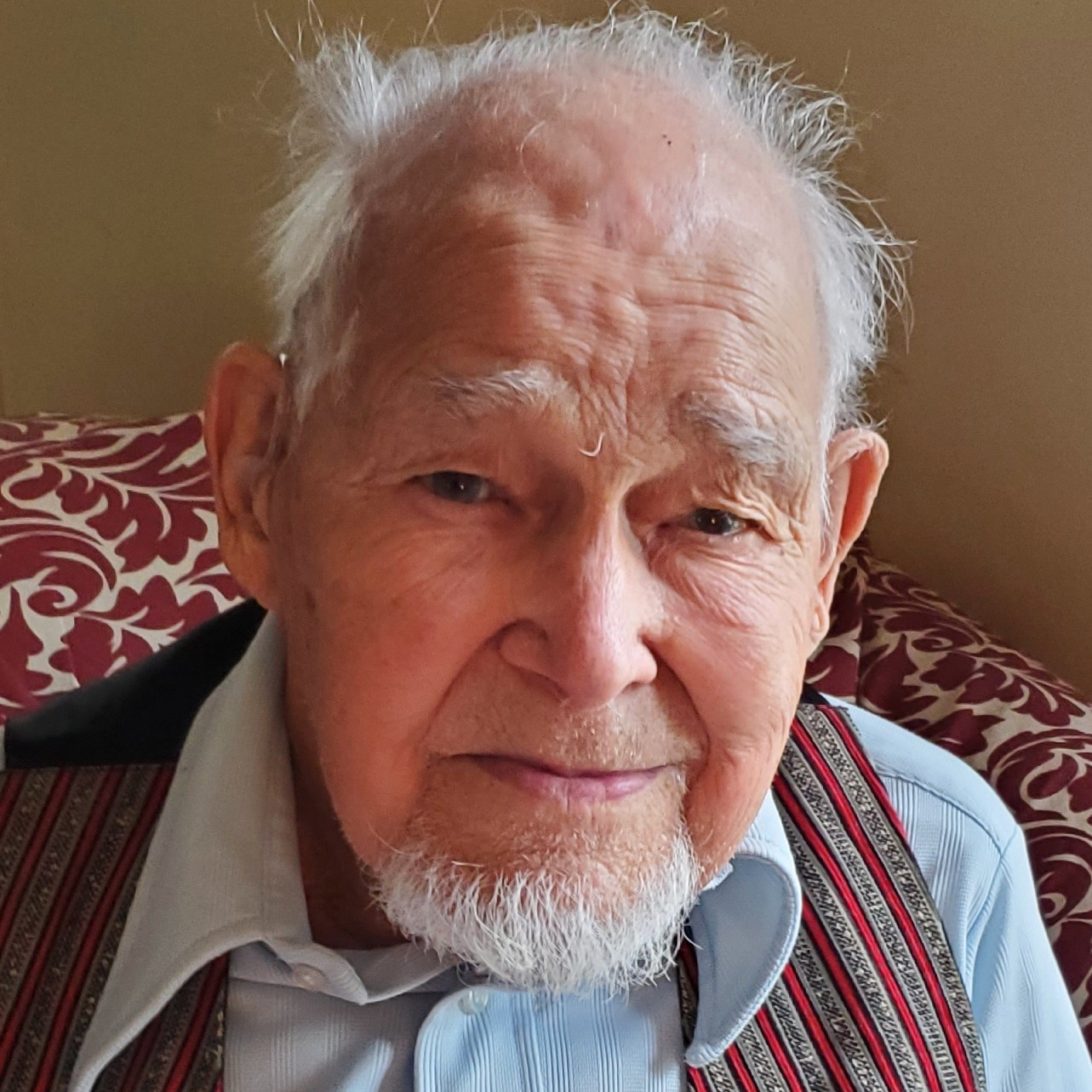Andrea shared her story in April of 2022.
I used to be the person who would have a panic attack if you talked about death and my dad in the same sentence. It made me uncomfortable when Dad would talk about what kind of death he wanted. He always said, “If I ever get cancer, I’m not going to get treatment. If it’s just going to kill me, I hope I’m able to go out on my terms.” Now, here I was, trying to start the conversation I never wanted to have.
My dad, who went by “Junior,” hadn’t had an easy life. For a decade he worked at the local grocery store where he lived in southern Utah, and then he moved on to the maintenance crew at an animal sanctuary for 16 years. Hard work didn’t scare him — he lived for it, and his hands showed it. But he also used his hands to play bass and saxophone and write short stories. He loved movies of every genre, accumulating thousands of DVDs and VHS tapes. Anything old, he collected it: comics, baseball cards, football cards. Above all of this, for him, family was everything.
In April 2021, I was FaceTiming with Dad when he mentioned that he had been experiencing intense back pain. A visit to the chiropractor didn’t help. My father, so averse to going to the doctor, made an exception this once. When he got a call on a Friday that the doctor would like for him to come in the following Monday to discuss his test results, I knew that the news wasn’t good.
My husband, Niall, and I drove from Minnesota to Utah on June 3, 2021. On June 4, after many scans and tests, Dad received an official diagnosis: stage 4 lung cancer in both lungs. He had three to six months to live.
I watched Dad’s health decline rapidly over the next week. One morning, Niall and I showed up to Dad’s house when he was trying to take the garbage out. In the process, he hurt his back. It was the first time I saw pain bring my father to his knees. We did not yet know that his cancer had spread to his spine.
On June 24, the doctor shared the results of Dad’s latest scan: The cancer had spread into his neck, spine, ribs, bones and lymph nodes. “This isn’t curable, Junior,” the doctor said. Dad replied, “To me, doc, what’s important is my quality of life.” Still, Dad was insistent that he wasn’t ready for hospice just yet. He said he wanted to consider treatment options that might prolong his life. Before he could start immunotherapy, however, he’d have to wait two to three weeks to see if insurance would cover it.
In early July, there was a day when Dad was really incoherent. It was like he had one foot in this world and one in another. I grew worried. Was this the beginning of the end? That evening, as he started to come out of the fog, I decided it was time for us to have a conversation about hospice. Dad had given me power of attorney for health care, and I wanted to be sure I understood what he wanted and why.
Curious, I asked him why he wanted to do treatment. “I feel like I owe it to you kids,” he said. “No, you don’t owe us anything,” I said. “This is your life; you need to do what you want to do, not what you think we want you to do.” Dad started crying. Then he just said, “Thank you.” On July 12, Dad started hospice care in his home so that he could die at home, like he wanted.
I couldn’t have asked for a better person to help us than our hospice nurse. With his history of addiction issues, my dad had a very high tolerance for pain medication. I’d seen ER nurses treat him like a drug addict, insisting that he wasn’t in pain. But instead of judging him right away, our hospice nurse was clear that she didn’t want him hurting: “This information I’m learning from him right now can be very useful in the future for someone else like him.”
Despite the nurse’s attentiveness, we struggled to keep my father comfortable. I have detailed notes of his medication lists from when he first started hospice until the end. You can see that the list starts super short, and toward the end it’s ridiculously long. We went from oxycontin to morphine to 50 micrograms of fentanyl, then 100 micrograms of fentanyl. By the time we stopped fentanyl, he was at 200 micrograms. We still weren’t able to relieve his pain.
On his good days, Dad would look at me and smile, and I could see that he was feeling good, but it would never last all day. Four separate times, he looked at me and said, “Andrea, can you please just take me out?” And I said, “Dad, I can’t do that. I will try to do everything I can, but I can’t do that.” Some days I sat there and looked at him and just cried because it was so cruel that he had to go through this.
Even before Dad started hospice, he had expressed to me his wish that he had the option of medical aid in dying. If he could have made that decision, he could have called his friends and said, “We’re going to have a big dinner, and we’re going to watch movies, and then I can go to sleep with all of you by my side.” He would have definitely chosen that option if it were available to him. Instead, the way he went out was not the way he wanted. With how much he was hurting, it was absolutely horrible.
On August 2, he was extremely restless. Before I left him for the night, I stood and looked at him for a good 10 minutes. As I drove to my mother’s house, I prayed with every fiber of my being that he would be free of his suffering soon. Shortly thereafter, my brother called to say he thought Dad had stopped breathing. By the time I rushed over, he was gone.
I documented everything as my dad was dying. I didn’t document it with a purpose. But after I was done typing up all my notes and diary entries, I thought, “Andrea, you need to do something with this. You need to tell his story.” I’m fighting for the option of medical aid in dying in Minnesota because no one should have to go through what we did. One glance at my notes of my dad’s pain meds should be enough to prove that there is some pain that cannot be treated. Why is this option not available to all mentally capable adults with a terminal diagnosis? No one should have to suffer like my dad did.
If you believe that terminally ill adults in Minnesota should have a compassionate option, add your name here.


